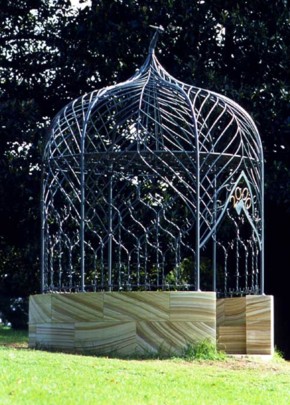On Australia Day 2011 again we hear the calls: Change the Flag; become a Republic; reparations for the White Invasion...
There are strong arguments for progress in each of these areas but as the following article discusses we first need to ensure that the changes that must be made are indeed progress; that we don't sacrifice that which has been achieved already.
One question that needs to be asked is how Australia has done so consistently well as compared to the bulk of the rest of the world; when measured by standard of material wealth; health; general literacy and education; contributions to world culture; and even contributions to science.
Is it just good luck - à la Donald Horn - or good government, good management or good ideas?
It is obviously a good culture; but in what aspects (it can't all be good)?
Of course we have some near cultural competitors and some may be marginally ahead. Arguably Norway, or New Zealand, does better - maybe because it's a bit colder and more miserable.
Possible reasons include:
- rule of law
- our historical lack of a rural peasantry (Australia has always been amongst the most urban countries)
- Federal, democratic government (federations and democracies usually do better)
- 'New' countries generally do better
- secular states do better
- early discovery of gold - then other minerals agricultural wealth (not too flash compared to say Argentina or the US)
- good, free education
- egalitarianism
- scepticism
- a healthy lifestyle (but is this so and if so why... )
- hard work (some historical accounts discount this)
- smarter work (better directed effort)
- better allocation of productive resources
- reliance on unfettered markets
- high home ownership (leading to community/personal responsibility)
- universal suffrage
- willingness to embrace change (as an outcome of... all of the above?)
- rapid acceptance and integration of new ideas and technology (as a result of... )
- modesty in respect of our own achievements (lack of arrogance - 'wow, did we do that?')
But none of these is entirely satisfying on its own.
Wealth generally maps closely to low levels of religious observance, and poverty to high, even within a religious country like the US; but these also map to other factors such as health standards; and levels of educational achievement. Certainly wealthy people generally demand more say in government; and better education; and better health services; and good law and order; and artistic distractions; and more freedoms; but in each case is this the chicken or the egg?
NSW has always enjoyed a better standard of living than most of the world: before we joined the Federation; when almost all people went to church; before we discovered gold, then other minerals; when agriculture had to compete with producers with more water and that were much nearer to markets.
The Bigge Inquiry in Macquarie's time contained an element of outrage that emancipated convicts had attained a higher standard of living than middle class Englishmen at home. But it also noted that NSW was a benign dictatorship - an autocracy under Macquarie - albeit based on the principles of the enlightenment (under the strong influence of the Scottish Enlightenment: - David Hume, Adam Smith et al - through Macquarie, Bigge and even Macarthur) and of course later; Darwin, after whom we even named a city.
Karl Marx used the number of pianos per capita as a proxy for standard of living and had to make an exception of NSW and Victoria (Australia) as what appeared to be rural societies, nevertheless leading the world in living standards.
Maybe we need an analysis on this level - perhaps we owe it all to a good foundation - from Hume and Smith to Macquarie? What is it about our culture that works so well; what could we improve; and what must we never damage?
Nevertheless it is inconceivable that in another hundred years Australia will still defer to the British Monarch to provide an imprimatur to our Heads of State or that we will still have a flag that proclaims our subservient position in the British Commonwealth of Nations.
Above all it is to our ongoing shame that a baby born into an Aboriginal family will, on average, have a much shorter life expectancy; very much higher probability of suffering violence and abuse; lower educational and income prospects; and far higher likelihood of ending up in jail; than other Australians.
All these things need fixing and the sooner the better. The problem lies in our lack on consensus in the way forward. As this article suggests, this stems from our different interpretations of the tales we call 'History'. Elsewhere I have discussed some bad ideas that contribute to our inability to easily solve some of these problems.

